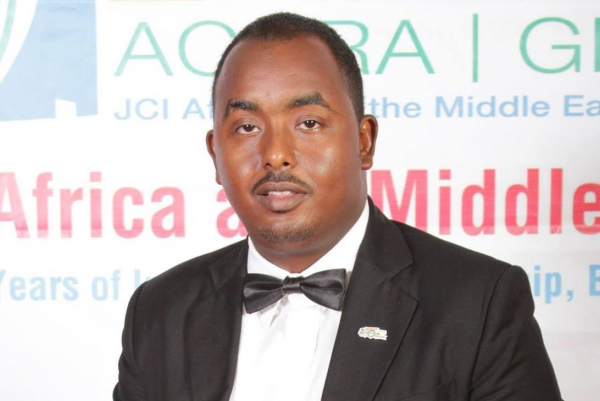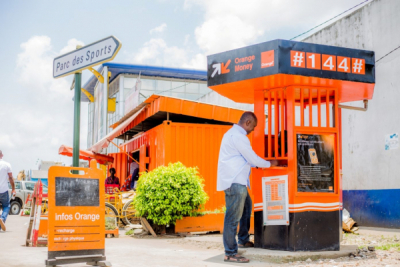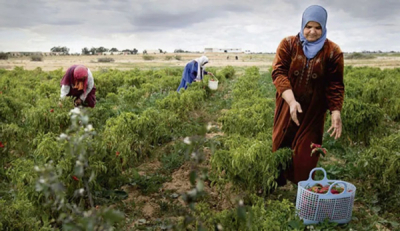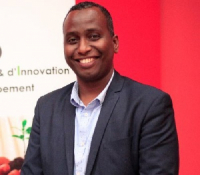Healthtech solutions are sprouting to help the African population easily access healthcare. In Cameroon, an entrepreneur is focusing on preventive care.
Healthlane is a digital platform developed by a Cameroonian startup founded in 2020. It allows users access to quality and affordable healthcare in Cameroon and Nigeria.
The platform has a mobile app (available for Android and iOS devices), through which users can book preventive care. To keep users healthy, it allows dozens of preventive checks.
Healthlane has a range of premium health packs allowing access to its services. Its packs cost between XAF50,000 and XAF250,000. For instance, the XAF50,000 pack gives access to 48 preventive checkups against over 100 preventive checks for the XAF250,000 pack. The startup aims to help users “detect diseases before they strike.” So, even people with health insurance plans can buy Healthlane’s packs.
The startup claims over 500 preventive checkups performed, over 10,000 curative care given and 10,000 vaccines administered. In 2020, it participated in the winter cohort of Californian accelerator Y Combinator. The same year, it raised US$2.4 million to boost its development. It even announced its expansion to the Kenyan and Ivorian markets in the next few months.
Adoni Conrad Quenum
Over the past few years, he has taken numerous initiatives to empower the youth and promote digital entrepreneurship in his country, Djibouti. Thanks to his commitment to the task, he has won the trust of international and national actors.
Mohamed Guireh Galab (photo) is a Djiboutian entrepreneur. In 2018, he founded StartUp Factory, an incubator that trains entrepreneurs and invests in innovative projects, from product ideas to launch. His incubator is accessible to digital enthusiasts who want to make money from their passion, ICT, in Djibouti.
Over the years, StartUp Factory, currently present in six cities, has developed partnerships with public institutions, including microfinance institution CPEC and the private investments’ promotion agency FDED. The partnerships aim to give Djiboutians an opportunity to implement their project ideas.
Galab is very committed to youth empowerment. To drive that goal further, four years ago, he co-founded Djibouti’s young entrepreneurs’ network CJED. With CJED, he facilitates experience-sharing, networking, and value-chain-creation. “CJED offers equal opportunity for every young Djiboutian to create, develop or revive his/her company,” Galab says.
Since 2012, he is the national chairman of Junior Chamber International (JCI) Djibouti. In 2019, he became a country director for the Global Entrepreneurship Network, launched in 2008 to build a global entrepreneurship ecosystem. The following year, he was named Djibouti's ambassador to Africalink, a network of entrepreneurs operating in Africa and Europe. The entrepreneur is also a Young African Leaders Initiative (YALI) alumni, who took part in the 2017 training program at Clark University, Atlanta. In 2021, he made it to Africa Digital Festival’s top 50 continental digital champions 2021.
Melchior Koba
Last year, Côte d’Ivoire’s mobile money market was shaken by a new actor, which increased competition with an aggressive pricing policy. The competition forced strategic adjustments, much to users’ benefit.
In Côte d’Ivoire, Orange Money Afrique is no longer reserved for Orange Côte d’Ivoire’s users only. Indeed, to boost financial inclusion in the country the telecom operator opened access to its platform, allowing users to carry out various financial transactions irrespective of the network they are subscribed to.
According to Mariame Diaby Touré, CEO of Orange Money Côte d’Ivoire, to carry out their transactions, users only have to download the Orange Money Afrique app, register by following the required steps, and validate their mobile money account. Then, they can send or withdraw money, carry out merchant services and pay bills right from the app.
By opening Orange Money Afrique to other networks’ subscribers, Orange Côte d’Ivoire materializes the mobile money interoperability being advocated by the government since 2020. “It is an additional step towards financial inclusion,” says Mariame Diaby Touré.
Currently, the telecom operator is multiplying initiatives to remain the leader of the Ivorian mobile money market disputed with Wave, MTN Money, and MOOV Money. To get closer to its users, the operator has 41,000 kiosks installed all over the country. It also made significant investments in its network infrastructure to guarantee quality services. Thanks to those investments, Orange Money Afrique is accessible everywhere, even in remote areas.
“We are proud to be part of Orange Group, which has great network ambitions. We have covered almost every part of the country with 3G and 4G,” Mariame Diaby Touré indicates.
Internet is currently a crucial tool for students. In that regard, Algerian authorities want to improve its quality in universities.
Algeria will accelerate the digital transformation of its universities. For that purpose, the country plans to increase the internet speed in higher education and research institutes by ten by January 2023. The move was announced by Higher Education Minister Abdelbaki Benziane, during the Higher Education Conference held in Annaba, last Saturday.
According to Minister Abdelbaki, “digitalization is a strategic choice and universities are about to successfully implement it to improve management, assessment, and [learners’] performance.”
The government official recalled that an integrated information system, called “Progrès” (Progress in French), and digital platforms have already been deployed to improve educational management, research, and university life.
By increasing universities’ internet speed, the government will help students save time during their research with lower latency. The move will also allow a large number of students to access the internet and have a positive impact on their studies.
The acceleration of universities’ digital transformation is in line with the Algerian President’s instructions for the digitalization of every state institution. The country initiated its digital transformation years ago but, the coronavirus pandemic accelerated the process.
Adoni Conrad Quenum
In Africa, most workers have no access to social security coverage since they work in the informal sector. In Tunisia, an entrepreneur has decided to help rural women access that service.
Ahmini is a digital platform developed by a Tunisian startup founded in 2019. It facilitates rural women’s integration into the social security system. The startup, which developed the platform, is the result of its founder, Meher Khelifi’s personal experience.
According to Meher, in rural regions, women usually work on their husbands’ farms without leaves or rest days. Their difficult working conditions damage their health but, they are usually unable to access quality healthcare due to limited financial resources, he explains. “I don't want anybody to live my experience: see someone very close to me die and not be able to do anything,” he said.
To reach a larger number of rural women, Ahmini and hundreds of trained volunteers met with the women and explained the advantages of subscribing to social security coverage. "There were no laws providing social or health coverage to rural women. Also, municipalities were not that much supportive, but I managed to prompt an amendment of the laws and the introduction of new ones covering rural women’s insurance,” he added.
Ahmini links social security numbers to the insured women’s SIM cards, facilitating access to affordable insurance. It also offers the possibility to sponsor women in various regions in Tunisia. Currently, it claims over 15,000 women registered, including 8,360 that were sponsored. It plans to expand throughout the Arab world, starting with Algeria and Lebanon.
Adoni Conrad Quenum
After her studies in Spain, she returned home to serve her country. In the last ten years, she has overseen several large tech projects, significantly contributing to socio-economic development.
Olivia Garcia Berniko (photo) is an Equatoguinean IT engineer. She is, since March 2016, the technical director of state telecom infrastructure company GITGE, which manages the country’s fiber optic cables - ACE, Ceiba-1 and Ceiba-2, Ultramar GE, Mandji, and SAIL notably, ensuring the integrity of communication means and making sure residents have access to telecom services.
"My daily routine includes managing our ongoing projects and technical department. I am also involved in the entity's corporate social responsibility projects, which add extra motivation as they are closely related to the human factor,” Olivia Garcia Berniko said in an interview with AhoraEG in 2021.
Before joining the GITGE, Olivia worked for Everis, a Spanish firm that supplies strategic tech and outsourcing solutions. When she left the Spanish firm, she joined the GITGE as a system engineer, ten years ago, and gradually climbed the corporate ladder. In 2014, she was appointed project manager before being promoted to the head of the technical department two years later.
In recognition of her professional achievements, she is now invited to share her expertise during international events. On April 29, 2022, she shared her experience and opinions in the tech sector with female leaders at the International STEM Women’s Conference held online. Last year, she was one of the 50 African Digital Champions at the Africa Digital Festival. She is also a Knight of the Equatoguinean Order of Independence.
Melchior Koba
Currently, just a few countries implement virtual court hearings. However, it is gradually being picked up, allowing the public to attend many court hearings at the same time.
Kenyan courts will be connected to the Google-funded National Optic Fibre Network Backhaul Initiative (NOFBI) by October 2022. The project was launched by Chief Justice Martha Koome last Friday, July 15. Overall, 300 courtrooms in 67 court stations can broadcast live.
“It is in appreciation of the transformative impact that this project will have on access to justice and performance of the judiciary, that I on behalf of the judiciary, extend our sincere gratitude to Google for thinking about access to justice and performance of the Judiciary as a key outcome area that Kenyan Government should target.[...] The e-courts will benefit from reliable, faster, and stable internet access that has been a challenge to the dispensation of justice through the virtual courts.[...]This project is going to solve the challenge that has stood in our way from fully realizing the full potential of virtual courts, mainly reliability, speed, and stability of the internet, ” said Martha Koome (photo).
The project aims to improve access to justice for Kenyans. It is part of Kenya's program to automate and digitize the justice system by leveraging technology as a catalyst for efficiency in the justice delivery system. It is also part of a Connectivity support program funded to the tune of Ksh500 million (US$4.2 million) by Google. In the framework of the program, apart from the 67 courts, six hospitals and eleven technical and vocational training institutions will be connected to network infrastructures across Kenya.
Samira Njoya
Despite the ongoing digital revolution, Africa’s higher education still faces a certain number of challenges. They include access to documentation. However, multifunctional centers are being built to overcome the challenges.
The World Health Organization (WHO) inaugurated, Friday (July 15), a digital information center in Brazzaville, Republic of Congo. The infrastructure was inaugurated by Health Minister Gilbert Mokoki during a ceremony attended by Dr. Lucien Alexis Manga, the WHO resident representative in Congo.
The center is aimed at facilitating access to the documentary resources published by the WHO on its information platforms.
"The digital information center will facilitate exchanges between health professionals. It has several rooms, some of which are reserved for WHO teams and their partners. It also has a twenty-workstation multipurpose room that can facilitate online training,” said Dr. Lucien Alexis Manga.
The newly inaugurated infrastructure will promote research and higher education in Congo. It will also serve as a digital library with a collection of audio and video documents that can be accessed remotely. "We formerly had huge libraries that were difficult to peruse. With the [digital information center] initiative, everything is summarized and can be read easily and fast. The initiative must be shared at will so that [the center] can inspire others,” commented Gilbert Mokoki.
The center, equipped with broadband internet, adds to ARCAI, an artificial intelligence research center funded by the UNECA and its partners. The research center was inaugurated in Brazzaville last February.
Samira Njoya
He equips Djiboutians with digital skills as a sustainable solution to the steady rise of unemployment in the country.
Samatar Abdi Osman (photo) is the founder and CEO of Djiboutian incubator CTID (Centre of Technology & innovation for development), founded in 2017. His incubator supports innovative and social project owners, mainly in the renewable energies, agribusiness, environment, and social services sectors.
“We offer young people digital training to enable the creation of projects that have social impacts. Digital technology is just a means and not an end. We aim to leverage it to find solutions to improve access to water, energy, education, etc.[...], and ensure that every project leader can specialize in a specific sector and find solutions to social challenges faced by Djibouti,” Abdi Osman told Senegalese Media Pressafrik in June 2022.
Last year, the founder and his team launched Horn Digital Academy to offer web development and digital marketing training. Apart from his works with the CTID, he is also the country representative of Club 2030 Africa, a think tank that shares skills to contribute to Africa’s emergence by 2030. He is also the Head of the Natural Hazards Analysis and Modeling Laboratory at the Djiboutian research institute CERD, since 2010.
Abdi Osman started his professional career in 2006 when he joined the CERD as a Geographic information systems expert. From 2008 to 2011, he served as a part-time teacher at the University of Djibouti. Two years later, he became a consultant for the UNDP. He also consulted for the French Development Agency and the African Development Bank, respectively in 2015 and 2016.
In June 2021, he was on the 2021 list of the French African Foundation’s 100 Young Leaders that celebrates “highest potential African and French talents” aged between 28 and 40.
Melchior Koba
The coronavirus pandemic prompted the development of numerous distance-learning platforms in Africa. In Morocco, an edtech startup has decided to facilitate the process.
KoolSkools is a digital edtech platform deployed by a Moroccan eponymous startup in 2020. It enables schools to digitalize their course materials, create a content bank and deliver live classes online. It aims to help improve the academic performance of primary and secondary school students.
According to its founders, KoolSkools “helps unleash students’ creativity, lets them experience another type of education, facilitates interactions and knowledge transfer, connect schools, teachers, students, and parents while offering quality educational content.”
The platform has a mobile app (available for Android and iOS devices) that allows parents, students, teachers, and academic institutions to register an account with KoolSkools. Using the app, students can attend classes and send practical assessments to teachers. As for parents, they can monitor their children’s performance and class attendance as well as access course transcripts.
KoolSkools also aims to be a digital management tool for daily school operations such as student records, payment management, and communication with parents.
The edtech is present in several major Moroccan cities and claims to work with about 30 schools, 20,000 students, and nearly 700 teachers. Its ambition is to reach 100,000 students in the next two or three years and cover the whole of Morocco. Recently, it secured US$290,000 support from the institutional fund Maroc Numeric Fund.
Adoni Conrad Quenum
More...
Africa is trying to pick up on the ongoing tech revolution. Its entrepreneurs are developing tech tools to address local problems or improve the existing solutions. In that line, a Beninese entrepreneur -settled in Côte d’Ivoire- recently launched a superphone speaking dozens of African languages.
On July 9, 2022, tech group Groupe Cerco launched a superphone that can be used by illiterate people thanks to its voice assistant, KONE. Apart from the usual languages (French, English, etc), KONE can speak some fifty African languages.
“Open [the superphone] has a smart voice assistance that speaks more than 50 African languages and allows personalized voice commands and searches in Dioula, Baoule, Fon, Goun, Yoruba, Wolof, Swahili, Peul, Malinké, Bambara, Hausa…,” said Dr.Alain Capo Chichi, CEO of Groupe Cerco.
The superphone was manufactured by Ivorian engineers inside the ICT village Vitib in Grand-Bassam, Côte d’Ivoire. It comes with two gigabytes of RAM and 32 gigabytes of ROM as well as a free 16 gigabytes memory card. Orange, which is Groupe Cerco’s official partner since the launch of Open superphone, offers a free 7.5 gigabytes data bundle to every buyer.
With Open, Alain Capo Chichi wants to conquer the world, starting from Africa (Côte d’Ivoire, for the time being). By 2023, he expects KONE will understand more than 1,000 languages, covering every local dialect in Africa.
Currently, the superphones are available in Orange Côte d’Ivoire’s stores at a promotional price of XOF60,000 (normal price: XOF100,000).
Adoni Conrad Quenum
There is a growing number of coding and digital training programs in Africa. The said programs aim to equip the youth with ICT skills that render them competitive in the digital economy.
Last Friday, July 15, on the sidelines of the World Youth Skills Day, the African Development Bank (AfDB) announced the selection of 500 Coding for Employment digital ambassadors “who will lead a peer-to-peer training model.”
The selected digital ambassadors will undergo three months of training in digital skills such as software development, problem-solving, project management, and communication. At the end of the training, they will receive ICT toolkits to “offer the same training” in their local communities to allow access to digital skills for more Africans, in rural communities with limited internet connectivity notably.
For this first edition of the digital ambassador program, AfDB (through its Coding for Employment) and its technical partner Microsoft, received 21,000 applications from all over Africa. In the end, 500 young people from four countries where the AfDB's Coding for Employment program is operational were selected. Those countries are notably Côte d'Ivoire (75 selected), Kenya (100), Nigeria (150), and Senegal (175).
“We are delighted by the enthusiasm and the passion the candidates have shown for the program. We have sifted through all the applications to identify candidates whose backgrounds and qualifications closely match the selection criteria. The 500 candidates will not only acquire skills that can help them find work but will also be able to create their jobs while also training others," said Hendrina Doroba, the AfDB’s Head of Education and Skills Development.
Coding for Employment, launched in 2018, is one of AfDB’s programs to achieve the goals of its Jobs for Youth in Africa (JfYA) Strategy. It aims to enable the youth “to bring about economic and social transformation in the digital age.”
With the JfYA strategy, the AfDB wants to create 25 million jobs in key sectors and increase the employability and entrepreneurial success of some 50 million young people by training them in hard and soft skills.
Samira Njoya
He has over 20 years of professional management and tech experience. He now leverages the expertise he acquired over the years to boost the development of the African digital economy.
Ibrahim Ba (photo) is a Mauritanian engineer and director of network investments in emerging markets for Meta (formerly known as Facebook), since 2021. He designed and coordinated the deployment of 2Africa, a subsea cable project. The project, implemented in partnership with seven telecom operators, aims to interconnect Europe and the Middle East and Africa region by 2024 for improved and affordable internet services and enhanced use of Meta services in Africa.
Ibrahim Ba joined Meta, in 2016, when it was still known as Facebook. At the time, he was head of infrastructure product partnerships for the Middle East and Africa region. His missions included improving connectivity and attracting new users online, in remote communities notably.
Before joining Meta, the executive acquired years of professional management and tech experience. In 1994, he started as a software developer for tech solution provider Captiva. Three years later, he joined the science and engineering research lab Argonne National Laboratory as a senior software developer.
In 2000, he became an associate in New York-based management consulting firm Oliver Wyman before he was appointed director in Level 3 Communications (which was later acquired by Lumen Technologies, formerly CenturyLink). When he left Level 3 Communications in 2006, he was appointed vice-president of management consulting firm HIP Consult Inc. Ten years later, he began his adventure with Facebook.
In 2020, Ibrahim was on pan-African media Jeune Afrique’s list of the 100 most influential Africans. In 2021, the same media listed him among the 50 individuals who shape the African digital ecosystem.
Melchior Koba
Water scarcity affects 40% of the world's population. To address the situation, the United Nations Office for Outer Space Affairs developed the World Hydrological Cycle Observing System (WHYCOS), which uses satellite technology to improve “basic observation activities,” strengthen international cooperation and promote free data exchange in the hydrogeology sector.
Ghana will use space technology to monitor and protect its water resources. The plan was announced by Ghanaian vice-president Mahamudu Bawumia, last Thursday (July 14), while addressing the 5th International Conference on the use of space technology for water resources management (the conference ended on Sunday, July 17).
“Water resources management is an integral part of national development and there is an avenue for space technologies to be used to monitor and evaluate water resources,” he said.
According to the government official, water resource management is a pressing issue for Ghana, whose abundant water resources are threatened by human activities. He indicated that the government would soon pass the Ghana Space Policy, which would expand the missions of the Ghana Space Science and Technology Institute (GSSTI). The new policy will transform the GSSTI into a full-fledged space agency that will leverage space technology to improve the efficiency of the national fight against uncontrolled exploitation, which affects the quality of its water resources.
According to USAID and Sustainable Water Partnership, “Ghana has abundant water resources and is not considered water-stressed overall.” However, the resources are increasingly threatened by activities like illegal gold mining that contaminate municipal water sources with heavy metals, particularly in the Pra Basin. Municipal, domestic and industrial wastes also contaminate 60% of surface waters and degrade ecosystems and biodiversity, especially downstream of Kumasi and Accra.
By protecting its water resources, the government wants to guarantee their quantity and quality but also avert water shortages. It will also reduce the financial resources needed to treat water for mass consumption.
Samira Njoya















